Addressable LED Strips have revolutionized lighting, changing how we brighten spaces and add style. Addressable strips are different from traditional ones. They let you control each LED individually, creating vibrant displays. Welcome to “The Ultimate Guide To Addressable LED Strip,” a comprehensive guide that explores the depth and breadth of this revolutionary technology.
The time of boring, one-color lights is going away. Now, we have cool LED strips that change colors and fit different situations. These amazing devices have changed how we decorate and liven up spaces like homes and events. The possibilities are endless. You can have an amazing home theater or a stunning art installation.
Tom, an expert in LED lighting since 2005, will be your guide on this enlightening journey. I have a lot of knowledge about LED technology and have written this guide to help beginners and experts.
So, are you ready to dive into this colorful universe? This guide promises to light up your imagination and creativity like never before. Start your journey to endless possibilities by transforming your living room. Create a festive atmosphere or explore wearable art projects. Let’s dive right in!
What Are Addressable LED Strips?
Definition and Basic Principles
Addressable LED strips are an innovation that goes beyond traditional lighting. Each LED can change color and brightness on its own, creating a coordinated display of light. Designers can use communication protocols like DMX512 or SPI to create precise lighting effects. These effects can move, pulse, and respond to external inputs.
You can think of this control level like a canvas. Each pixel is a brushstroke, offering endless creative options. You can bring your vision to life by controlling LED strips individually. You can use them for mood lighting or complex stage effects.
Key Features
Individual Control over LEDs: Each LED acts as a stand-alone unit, enabling intricate patterns and transitions.
Dynamic Color Schemes: With access to a full RGB color spectrum, designers can achieve various hues and effects.
Integration with Various Control Systems: Compatibility with controllers and software ensure seamless integration into existing environments, whether a smart home system or professional lighting rigs.
Energy-Efficient: Despite their advanced functionality, addressable LED strips often consume less energy than traditional lighting, contributing to a greener planet.
Addressable LED Strip vs Non-addressable LED Strip
Addressable and non-addressable LED strips differ in how they are controlled. Addressable LED strips give control to each LED, while non-addressable strips treat the strip as one unit. This may work for simple uses, but it doesn’t allow for complex designs and transitions.
Addressable LED strips, on the other hand, open doors to creative lighting solutions. Imagine your lights syncing with music, making colorful waves that dance to the beat. Also, think about designing captivating displays for storefronts to catch people’s attention. The possibilities are endless with addressable LED strips.
Single Signal vs Dual Signal vs Breakpoint Resume
These categories further define how addressable LED strips function:
Single Signal: These strips work on one data line, sending information sequentially to each LED. This type is more susceptible to interference.
Dual Signal: Offering more robust control, dual signal strips use two data lines, reducing the risk of data loss and creating a more stable performance.
Breakpoint Resume: A unique feature that allows the strip to continue its pattern even if a section fails. This is critical for applications where consistent performance is vital.
Built-in IC vs. External IC
Built-in ICs (Integrated Circuits): These chips are integrated directly into the LED, offering a compact solution that supports streamlined design.
External ICs: External ICs are separate from the LEDs and allow more flexibility in control but may require more complex wiring.
WS2811 vs WS2812 vs WS2813
These common chipsets within addressable LEDs each have unique features:
WS2811: Often used with external ICs, this chipset offers flexibility in control but might require additional wiring.
WS2812: Known for its built-in ICs, the WS2812 is a popular choice for many hobbyists, combining ease of use with a wide range of functionalities.
WS2813: An upgraded version of the WS2812, the WS2813 offers enhanced performance, including the breakpoint resume feature, making it ideal for professional applications.
The chipset you choose will depend on what your project needs, such as how complicated the controls are and how easy it is to install.
How to Choose the Right Addressable LED Strip
The choice of an addressable LED strip can be both exciting and bewildering. With so many choices, it can be overwhelming to find the right strip that fits your needs and budget. However, by grasping key factors, you can confidently navigate this intricate terrain. Here’s a comprehensive guide to help you choose the right addressable LED strip.
Voltage and Power Consumption
To choose an addressable LED strip, you need to know its voltage requirements and power usage. The strip connects to your power supply. You can choose an energy-efficient option by understanding power usage.
Voltage Requirements: Typically ranging from 5V to 24V, you must match the voltage of the LED strip with your power supply to prevent damage or underperformance.
Consumo di energia: Measured in watts per meter, it varies based on brightness and color settings. A higher wattage provides more brightness but consumes more energy. Consider your energy costs and environmental impact when selecting a strip.
LED Chip Size and Density
The size and density of the chip affect how bright, flexible, and visually appealing the LED strip is.
Chip Size: Larger chips often produce more brightness and are more energy-efficient but might be more expensive.
Density: The density refers to the number of LEDs per meter. A higher density provides a smoother appearance without noticeable gaps between LEDs. A lower density might be more suitable for subtle lighting effects.
Waterproof and IP Rating
When using something outdoors or in wet conditions, it’s important to consider if it is waterproof. This is indicated by its IP (Ingress Protection) rating.
Waterproofing: Not all LED strips are suitable for wet environments. If you want to use them outside or in wet places, look for strips that are specifically made to resist water.
Grado di protezione IP: The IP rating defines the level of protection against dust and water. For instance, an IP67 rating provides full dust protection and can handle being briefly submerged in water.
Type of Colors and Integrated Circuit Chips (ICs)
Your choice of color and IC types will significantly shape the final visual effect.
Colori: Most addressable LED strips offer complete RGB color control, but specialized strips might provide additional color options like warm or cool whites.
IC Types: Different ICs (WS2812B, APA102, etc.) provide various functionalities and control capabilities, affecting how you can manipulate colors and patterns. Consider your project’s complexity and the control methods you prefer.
Price vs Quality
To find a product that suits your needs and is affordable, it’s important to balance price and quality.
Convenienza: Cost-effective options provide decent performance for simple projects or temporary installations.
Quality: Investing in higher-quality strips offers better color accuracy, longevity, and overall performance. Think about how important these factors are for your project and compare them to your budget.
To choose the right LED strip, understand the specs and match them to your needs and budget. These factors will help you create a great lighting project, no matter your experience level.
Types of Individually Addressable LED Strips
Individually addressable LED strips offer many options for hobbyists and professionals. When choosing a type for your project, think about the controller chips, signal protocols, voltage, colors, and chip size. Let’s delve into these categories.
Based on Integrated Controller (IC) Chip
IC chips play a vital role in controlling the LED strip’s behavior, energy efficiency, and color reproduction.
WS2812B, APA102, SK6812, LPD8806
These are popular IC chips used in LED strips, each with its unique characteristics:
WS2812B: Known for its built-in controller, it allows individual LED control. Great for beginners, it requires only one data line.
APA102: Often used in professional applications, it uses a two-wire SPI protocol, enabling high refresh rates and precise color control.
SK6812: A variant of WS2812B but offers a broader color range, including warm white. It provides a more flexible design approach.
LPD8806: Its dual data lines offer robust control and stability. Particularly useful in complex lighting displays where continuous operation is critical.
Based on Signal Protocols
The signal protocols in an addressable LED strip determine how the strip receives instructions. These instructions can change the color, brightness, or pattern.
DMX512, SPI, Breakpoint Resume
Understanding these protocols helps in selecting the correct control method:
DMX512: A widely used standard in stage lighting, offering complex control and compatibility with various lighting equipment.
SPI (Serial Peripheral Interface): Offers fast data transmission and flexibility in control methods, ideal for high-end applications.
Breakpoint Resume: A feature that enables the continuation of a lighting effect even if a segment of the LED strip fails, enhancing the resilience of the display.
Based on Voltage, Colors, and Chip Size
Tensione: Usually ranging between 5V to 24V, selecting the proper voltage ensures compatibility with power supplies and the intended brightness level.
Colori: Choices include RGB, RGBW, or single-color strips. Consider the visual effects you desire.
Chip Size: Different sizes affect brightness and energy consumption. Aligning this with project needs ensures optimal visual effects and efficiency.
How to Install and Wire Addressable LED Strips
If you have the right tools, materials, and knowledge, installing addressable LED strips can be a rewarding DIY project.
Strumenti e materiali necessari
Soldering Iron: For connecting the LED strips.
Alimentazione: This must match the voltage and current requirements of the strip.
Connettori: Depending on the installation needs, various types are available, such as snap connectors or wire nuts.
Step-by-Step Guide
Measure the Desired Length: Measure the space where you want to install the strip, adding some extra length for flexibility.
Cut the Strip: Use specialized scissors or a sharp blade to cut at the marked lines.
Solder Connections: Connect wires to the cut ends, ensuring a strong connection.
Test and Install: Test the strip to ensure proper connection before securing it in place.
Dealing with Bends and Corners
Special Techniques: Cutting and re-soldering at bends allow intricate designs and smooth transitions around corners. Heat-shrink tubing can protect connections.
How to Connect to Power Supply
Tips and Tricks
Ensuring Proper Voltage: Select a power supply that matches the LED strip’s voltage requirement.
Using Quality Connectors: Avoid cheap connectors that might fail, leading to intermittent or total failure.
Careful Soldering: A well-soldered connection ensures a smooth and stable power supply, preventing potential flickering or color inconsistencies.
Whether it’s a simple mood lighting setup for your bedroom or an elaborate display for a commercial space, understanding these aspects of individually addressable LED strips ensures that your project will be both beautiful and reliable. With some knowledge and creativity, you have many options to create the perfect lighting effect.
Programming and Customizing Addressable LED Strips
The real magic of addressable LED strips lies in their programmability. The lights can create many different effects that match the mood, season, or theme. In this section, we will talk about the protocols and controllers you need. We will also discuss popular coding languages and libraries. Finally, we will explore ways to be creative in design and customization.
Understanding Protocols and Controllers
To control addressable LED strips, you need to know the communication protocols and controllers used. They make your lighting project come alive.
Protocols: These are the specific methods of communication between the controller and the LED strip. DMX512 is a typical example, offering advanced control and synchronization, making it a popular choice for professional lighting setups.
Controllori: These are the hardware or software interfaces used to program and control the LED strips. They range from simple remote controls to sophisticated computer interfaces, each providing different levels of customization and functionality.
Popular Coding Languages and Libraries
Programming addressable LED strips are no longer reserved for engineers or computer scientists. Anyone who knows how to code can use different programming languages and libraries to make impressive visual effects.
Arduino: Offers an accessible platform for hobbyists, with countless examples and community support for LED control.
Python: A more advanced option, Python provides endless possibilities for customization and integration with other systems.
Biblioteca FastLED: This open-source library supports a wide array of LEDs, offering features like color correction and blending, making it easier to create professional-level effects.
Creative Designs and Customization
Programming addressable LED strips allows for limitless creative options.
Immersive Home Theaters: Synchronize lights with movies or music to create a theater-like experience.
Interactive Art Installations: Combine LED strips with sensors for interactive lighting effects.
Festive Decorations: Program seasonal themes for holidays or special events, bringing a unique flair to your decor.
Manutenzione e risoluzione dei problemi
It’s important to set up an LED strip and also to have skills for maintenance and troubleshooting. This guide will help you keep your addressable LED strips working well and looking good.
Pulizia e manutenzione
Regular Cleaning: A soft cloth can remove dust and debris, maintaining brightness and color accuracy.
Avoiding Harsh Chemicals: Select gentle cleaning solutions to prevent damage to the LEDs or strip coating.
Ispezione di routine: Regularly checking connections and overall strip health helps in the early detection of issues.
Common Issues and Fixes
Even the best installations can face issues. Knowing how to diagnose and fix them is essential.
Flickering: Often caused by loose connections, ensuring tight and secure connections can eliminate this issue.
Inconsistent Colors: Recalibrating color settings or checking for any damage to individual LEDs helps resolve this problem.
Precauzioni di sicurezza
Turn off Power When Working: Always disconnect the power before cleaning or adjusting to prevent accidents.
Use Proper Insulation: Ensuring that all connections are well-insulated minimizes risks related to electricity.
Overheating, Flickering, Inconsistent Colors
Understanding these common problems is critical to long-lasting performance:
Surriscaldamento: Adequate ventilation and not overloading the power supply can prevent this issue.
Flickering and Inconsistent Colors: These are often related to poor connections, faulty power supplies, or damaged LEDs. Regular inspection and maintenance can prevent or quickly resolve these problems.
Inspiring Project Ideas with Addressable LED Strips
The fusion of technology and art has given birth to a new era of design and creativity. Addressable LED strips are driving innovation. They can be programmed, have vibrant colors, and are easy to use. There are endless possibilities for aspiring artists, DIY enthusiasts, and event organizers. Here’s how addressable LED strips can inspire your next project.
Home Decoration
Transforming ordinary spaces into extraordinary living experiences is now at your fingertips. Addressable LED strips can add a touch of magic to various areas of your home:
Salotti: Imagine creating a dynamic ambiance that changes with the mood or time of day (LED strips in the living room). Accent walls, under-cabinet lighting, or even integrating with home automation systems can create visually striking effects.
Cucine: Enhance functionality and aesthetics by incorporating LED strips under cabinets, along countertops, or inside glass cabinets for a luxurious feel.
Gardens and Patios: Outdoor spaces can be brought to life with creative landscape lighting using weather-proof LED strips, adding charm to pathways, planters, or water features.
Events and Festivals
From small gatherings to grand festivals, the proper lighting can elevate an event to a new level. Here’s how you can create a memorable experience:
Weddings: Use addressable LED strips to synchronize with the wedding theme colors, creating an enchanting atmosphere for the perfect marriage (LED strips in festival decoration).
Concerts and Shows: Engage audiences with interactive lighting effects that respond to music or performance cues.
Themed Festivals: Halloween, Christmas, or any themed event can benefit from customized lighting designs, turning ordinary settings into immersive environments.
Wearables and Art Projects
Artists and designers are also captivated by the small and flexible LED strips.
Moda: Integrate LED strips into clothing or accessories for eye-catching, dynamic fashion statements for runway shows or unique personal expressions.
Sculptures and Installations: Artists use LED strips to create vibrant sculptures and installations that interact with viewers or respond to environmental factors.
Interactive Art: Whether in galleries or public spaces, LED strips can be part of interactive exhibits that engage and captivate audiences.
Where to Buy Addressable LED Strips
Investing in quality addressable LED strips is paramount for successful projects. Knowing where to buy these strips ensures you get genuine products with performance and reliability.
Trusted Sources and Recommendations:
Online Retailers: Platforms like Amazon, eBay, and specialized electronic marketplaces often provide a wide selection, user reviews, and often competitive prices.
Specialty Electronics Stores: For those seeking expert guidance and hands-on experience, specialized electronics stores offer personalized assistance, helping you find the perfect LED strip.
Manufacturer Websites: Purchasing directly from reputable manufacturers can offer peace of mind in quality and provide bulk discounts for larger projects.
Local Hardware Stores: Pay attention to your local hardware or DIY stores, as they might carry quality LED strips and offer the advantage of immediate availability.
LED strips can transform your home, create events, or pioneer art. They’re versatile tools. With many buying options and creative possibilities, the only limit is your imagination.
Domande frequenti
What Makes Addressable LED Strips Different from Regular LED Strips?
You can control each LED separately with Addressable LED Strips. This allows you to create cool color combinations. Addressable LED Strips are different from regular ones. They have programmable chips and control protocols. This allows them to create stunning visual effects. They’re the go-to option for anyone seeking customized lighting solutions.
Can I Install Addressable LED Strips Myself, or Do I Need a Professional?
You can install addressable LED strips yourself with the right tools and techniques. However, seeking professional assistance ensures accuracy and safety if the project is complex.
How Do I Choose the Right IC Chip for My Addressable LED Strip Project?
The IC chip, like WS2812B or APA102, determines how to control and save energy. When choosing, consider your project’s control, customization, and energy needs. If you’re unsure, you can look up chip details or ask a specialized electronics store.
Are Addressable LED Strips Suitable for Outdoor Use?
You can use addressable LED strips outdoors with waterproofing and a high IP rating. Ensuring the proper specifications for your environmental conditions guarantees durability and functionality.
Can I Program Addressable LED Strips with Python or Arduino?
Absolutely! You can be very creative with FastLED, Python, and Arduino libraries. These platforms allow artists and tech enthusiasts to do advanced programming and customizing.
If your addressable LED strip is flickering or showing inconsistent colors, what should you do?
You might have problems with flickering or inconsistent colors. To fix them, check your connections or recalibrate. If you have any common problems, refer to the troubleshooting section in the guide for help.
How Can I Incorporate Addressable LED Strips into My Art or Clothing?
Artists can use addressable LED strips for sculptures and fashion, creating exciting works. Use strip features to align with your project’s needs and unleash your creativity for unique pieces.
Where Can I Purchase Reliable Addressable LED Strips?
To buy good addressable LED strips, check online retailers or specialty electronics stores. Look for reviews or recommendations to ensure a wise purchase.
How Do I Maintain the Appearance and Functionality of My Addressable LED Strips?
To keep the strips looking good and working well, clean them regularly with a soft cloth. Remember to turn off the power and use insulation for safety.
What Inspiring Projects Can I Create with Addressable LED Strips?
The possibilities are limitless! Make your home more lively, create attractive displays at events, or be bold with interactive art. Dive into the vibrant world of addressable LED strips, and let your imagination glow!
Conclusione
Exploring addressable LED strips reveals many exciting possibilities. Controlling each LED individually has changed lighting. It gives creatives, hobbyists, and professionals a wide range of options. Let’s summarize the key points that have been explored.
Types and Selection Criteria: From various IC chips like WS2812B and APA102 to different protocols such as DMX512 and SPI, understanding the individual characteristics allows the proper selection for specific needs.
Installation and Wiring: Knowledge of essential tools, precise measurement, cutting, soldering, and dealing with intricate designs ensures a successful installation.
Programming and Customization: Popular coding languages and libraries like Arduino and Python offer endless creativity while understanding protocols and controllers brings sophistication to the project.
Manutenzione e risoluzione dei problemi: Regular cleaning, identifying common issues, and adhering to safety precautions guarantee long-lasting performance.
Inspiration for Projects: Addressable LED strips have applications in home decoration, events, festivals, wearable art, and more.
Where to Buy: Finding trusted sources, from online retailers to specialty electronics stores, ensures quality and reliability.
The world of addressable LED strips is a playground for the inventive mind. The possibilities are endless. You can improve your living room or create amazing displays. You can even make interactive art installations.
We warmly invite you to dive into this colorful universe. Experiment with different chipsets, protocols, and explore new ideas in art and fashion. We want to learn about what you have created. We also want to know about the challenges you have faced and the joy you have felt in bringing your ideas to life.
Addressable LED strips can bring your ideas to life, regardless of your level of expertise. The tools, knowledge, and inspiration are all here. Happy experimenting!
Unitop is a top Chinese manufacturer of LED strip lights and LED neon flex. We are leaders in customizable lighting. We have extensive knowledge in LED lighting and can help bring your ideas to life. If you need more information or have special needs, please contattateci right away. Let Unitop be your guiding light in the realm of endless creativity and quality.
Articoli correlati

Tom è ora il Direttore Vendite di Unitop (Cina) Co., Limited. È stato nella Illuminazione a LED industria dal 2005. È un esperto di vendite e marketing e di gestione della fabbrica. Gli piace il bodybuilding ed è anche un fan sfegatato di Apple! È un lavoratore instancabile e ama imparare e provare cose nuove.
Email: tom@unitopledstrip.com WhatsApp: +86-18680307140

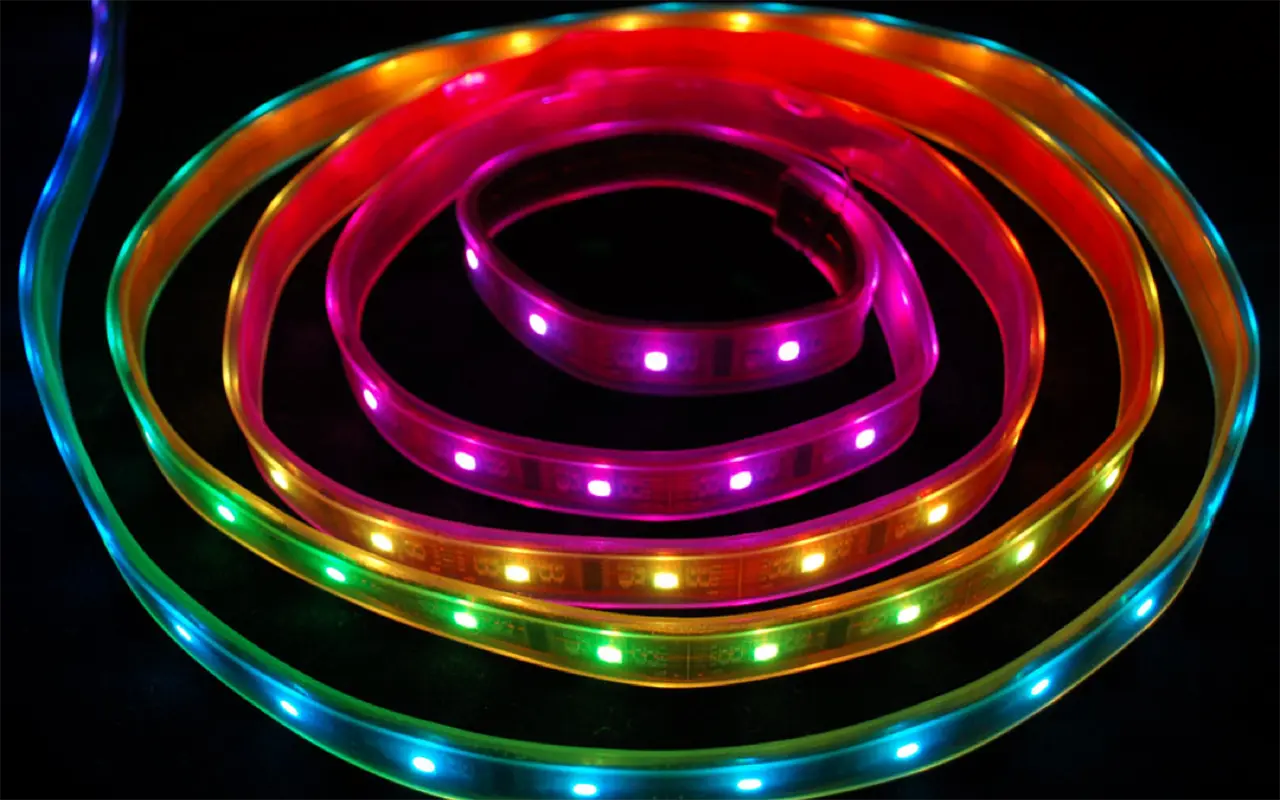
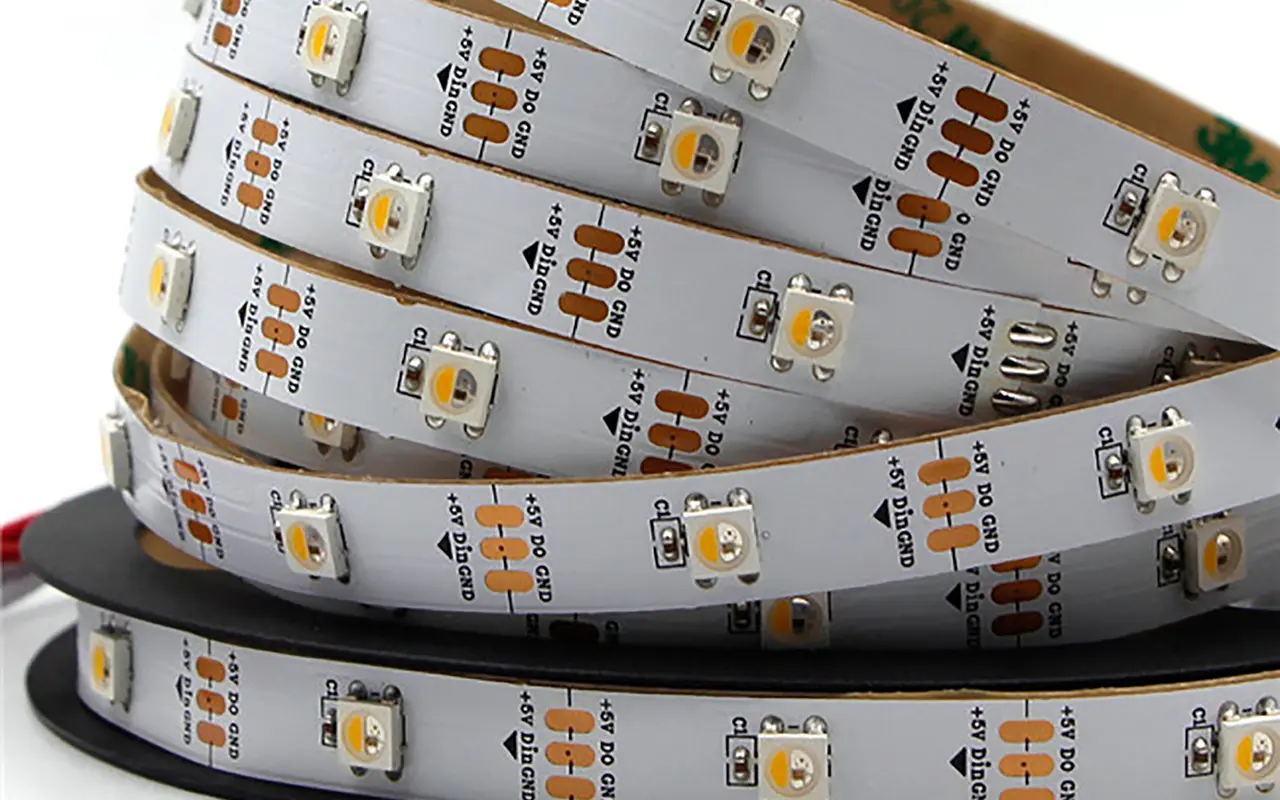
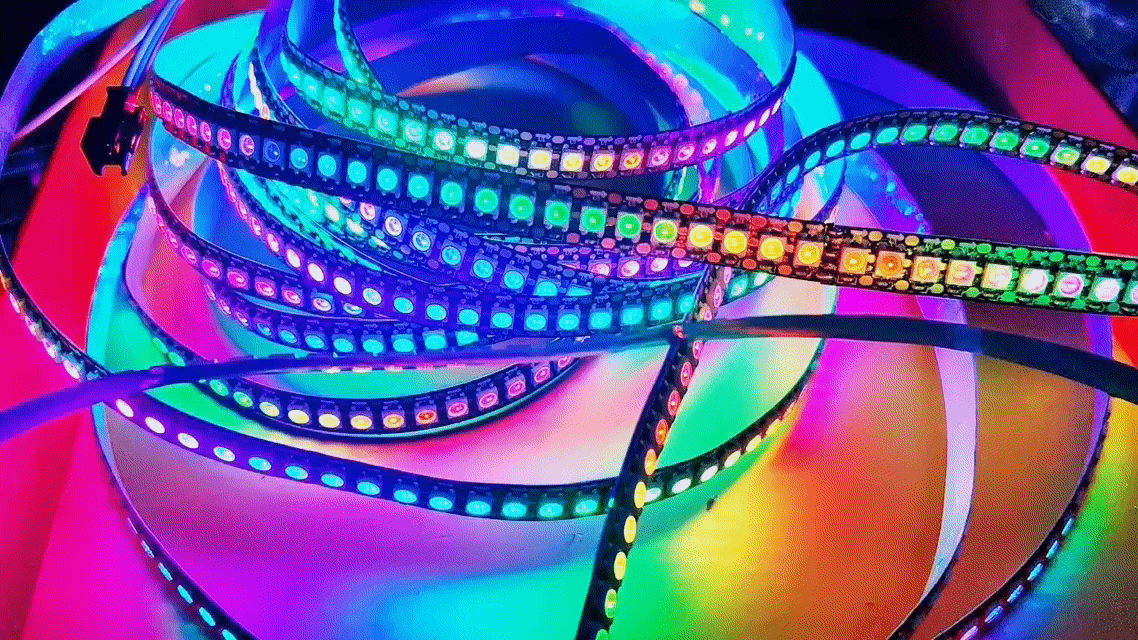
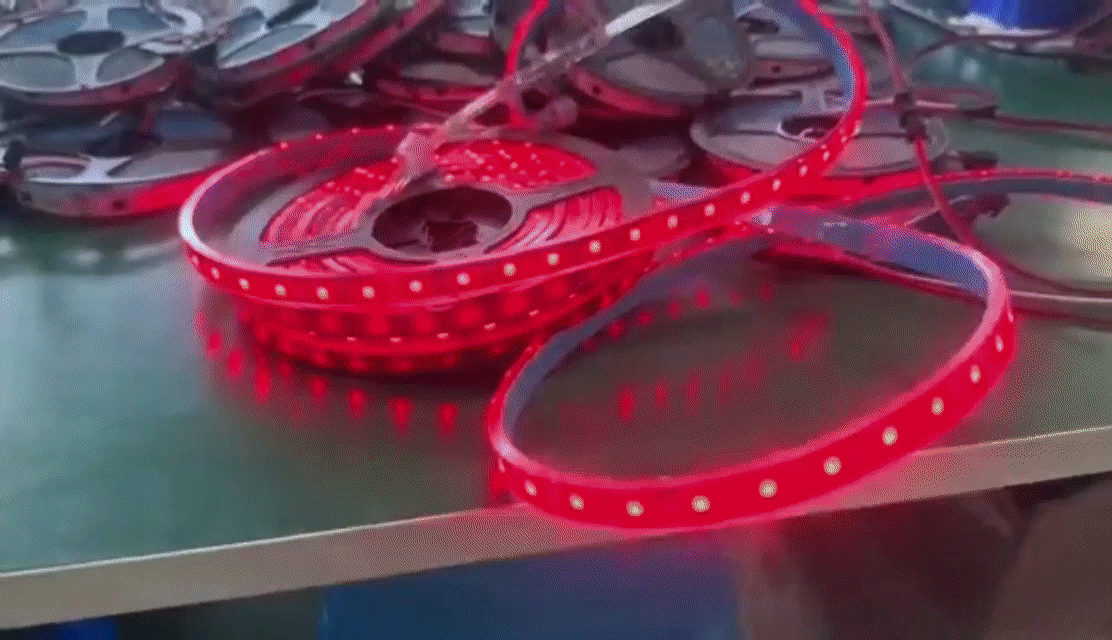
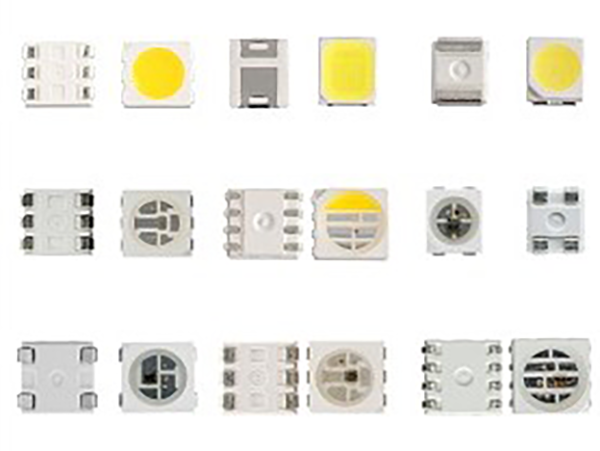

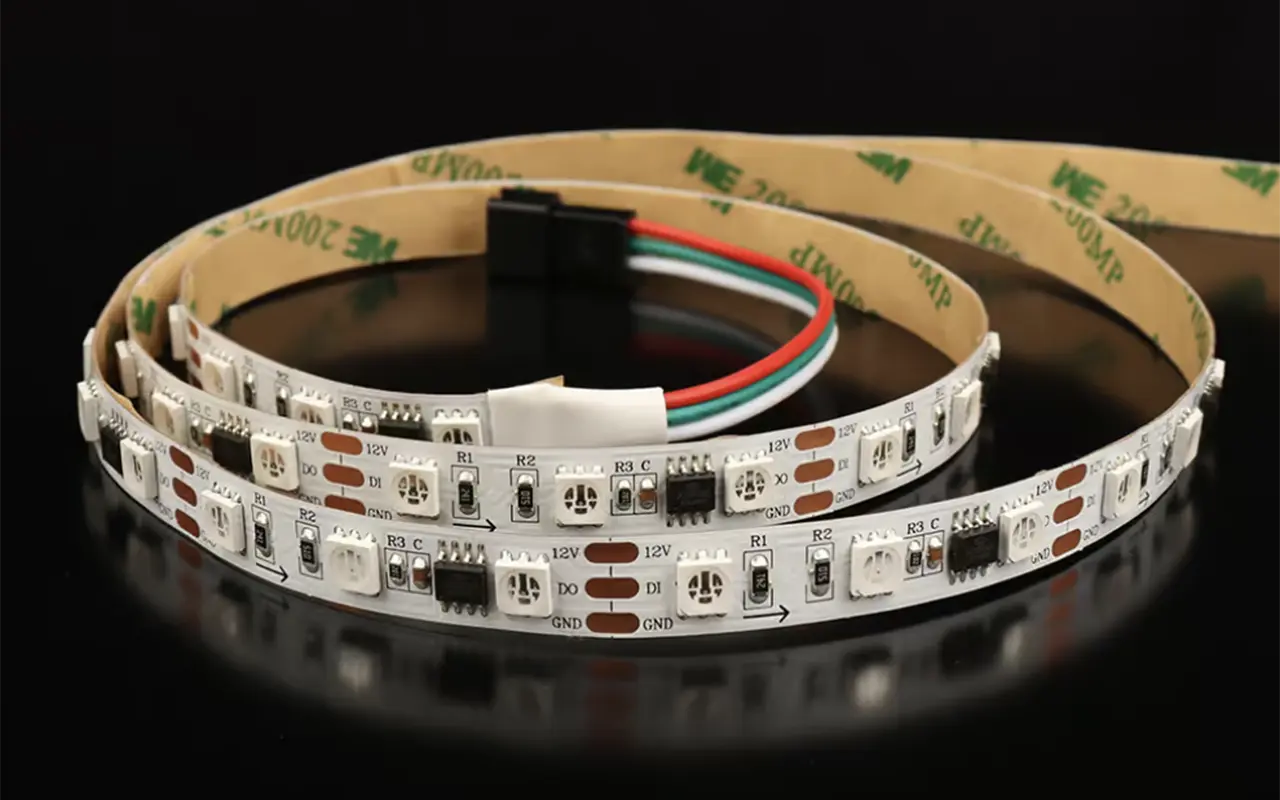


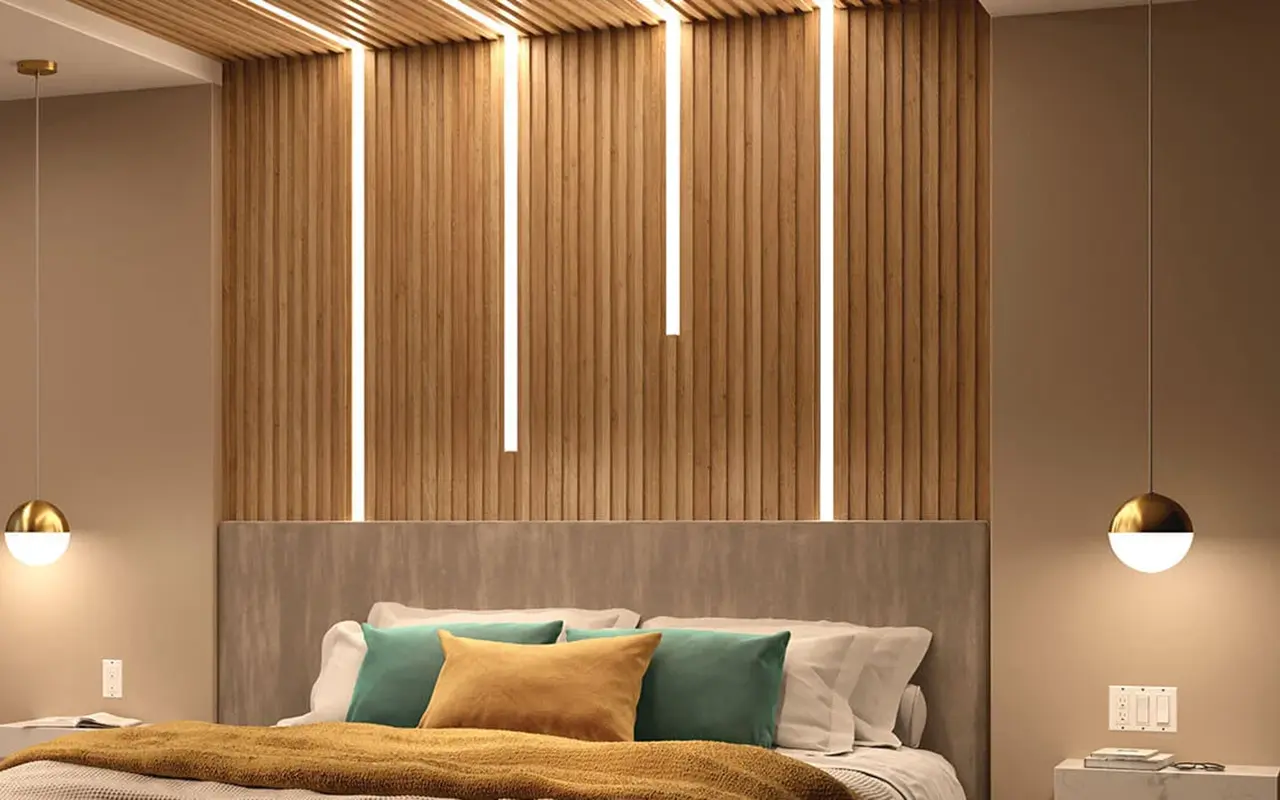

Lascia un Commento
Vuoi partecipare alla discussione?Sentitevi liberi di contribuire!